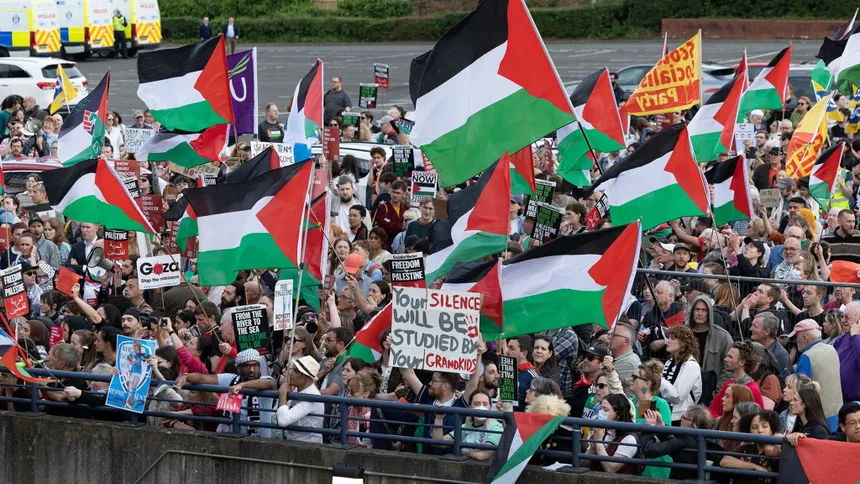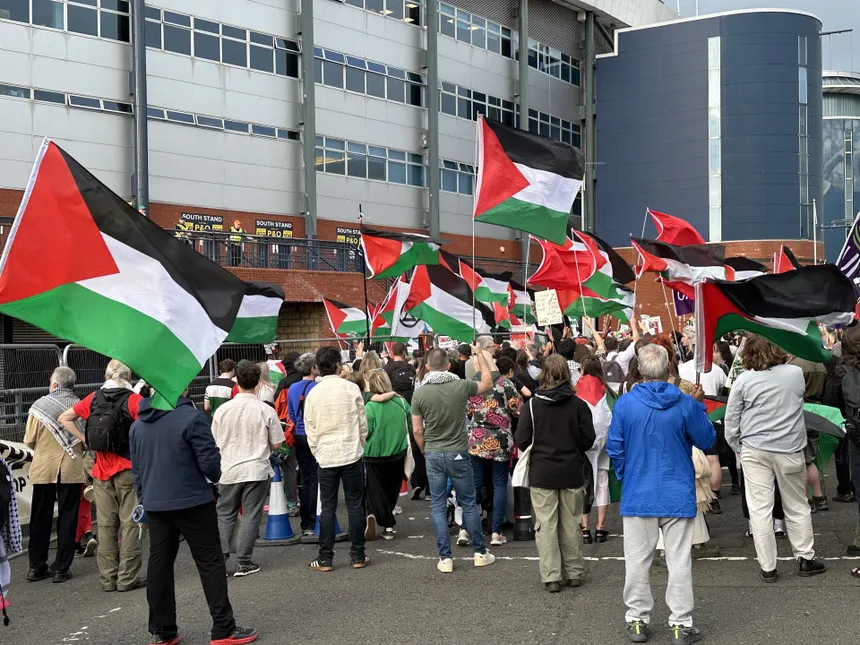A poignant and tense atmosphere filled the Hampden Stadium in Glasgow on Friday as Scotland’s Women’s Euro 2025 qualifier against Israel was delayed for over 30 minutes due to a dramatic incident on the pitch. The match, which was played behind closed doors, was halted just before kickoff as a 24-year-old man had apparently chained himself to a goalpost, sparking a heated and tense situation.
As pro-Palestine campaigners staged a demonstration outside the stadium, concerns mounted about the safety and security of the players, officials, and spectators. Chief Superintendent Stevie Dolan, in charge of policing the event, assured that a proportionate response was deployed to address the situation, seamlessly integrated with event organizers to ensure the safety of everyone in attendance and the surrounding area.
The arrest and subsequent charge of the 24-year-old man are a testament to the authorities’ swift action in ensuring public safety and maintaining order. According to Chief Superintendent Dolan, the man will be subject to a report to the Procurator Fiscal, signaling the formal charging process.
Despite the unfortunate disruption, the game resumed and Scotland emerged victorious, winning 4-1. The two teams will reconvene behind closed doors in Budapest, Hungary, on June 4th, providing another opportunity to showcase their skills. The incident serves as a reminder of the complexities and challenges surrounding international matches, particularly in the context of global politics and social activism.

Hampden Stadium in Glasgow
Scotland’s women’s national team has been making a strong case for themselves in recent times, and the postponement may have inadvertently added to the excitement and anticipation surrounding the match. Fans of the sport are likely to be eager to witness their team’s next outing, and the authorities will undoubtedly be more prepared for any potential disruptions.
The incident has also sparked a nuanced discussion about the role of protests and activism in high-profile sporting events. While there is a clear need to protect the safety and well-being of players, officials, and spectators, it is equally important to acknowledge and respect the rights of those exercising their freedom of expression.
The ongoing tensions in the Middle East have undoubtedly contributed to the charged atmosphere surrounding the match. Pro-Palestine campaigners have long used sporting events as a platform to draw attention to the plight of Palestinians, and this latest incident is a testament to the passion and dedication of those involved.
In hindsight, the delay may have inadvertently brought attention to the plight of Palestinians, creating an opportunity for dialogue and understanding. As the world grapples with the complexities of international relations and global politics, such incidents can serve as important catalysts for change and reconciliation.











































